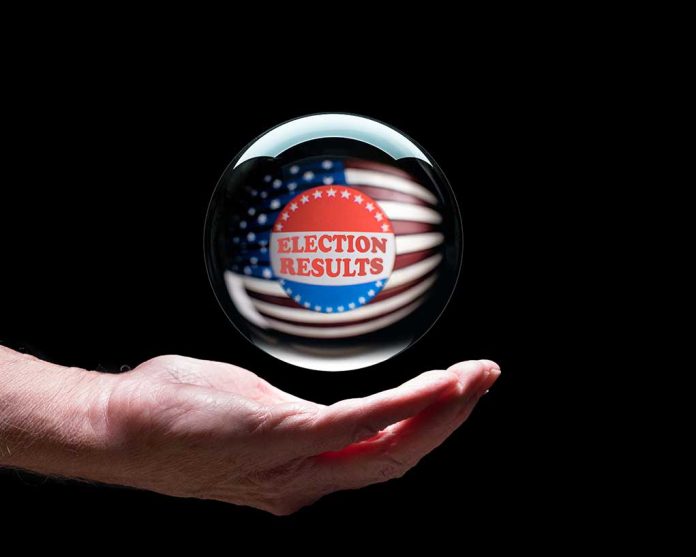
Allan Lichtman, renowned for his accurate election predictions, watched in disbelief as Donald Trump’s victory shattered his long-standing record and challenged the very foundation of his 13 Keys model.
At a Glance
- Lichtman’s “13 Keys to the White House” model failed to predict Trump’s 2024 win
- The prediction system had accurately forecasted every presidential election since 1984, except one
- Trump’s victory exposed potential flaws in traditional forecasting methods
- The event highlighted the unpredictability of modern elections
The Shock of Trump’s Victory
Allan Lichtman, a distinguished professor at American University, had built a reputation as the “Nostradamus” of presidential elections. His “13 Keys to the White House” system had accurately predicted the winner of every presidential election since 1984, with just one exception. However, the 2024 election threw a wrench into his well-oiled prediction machine when Donald Trump emerged victorious, defying Lichtman’s forecast.
The shock of Trump’s win was palpable during Lichtman’s live stream on election night. As the results poured in, Lichtman and his son, Sam, watched in disbelief. The U.K. Independent reported that Lichtman admitted the early numbers for Trump’s opponent were “not ideal” and later conceded that the data was “very scary.” As the race for North Carolina tightened, Lichtman uttered the words that would echo through the political forecasting world: “What? That’s not possible.”
The 13 Keys Model: A System Under Scrutiny
Lichtman’s prediction model is based on 13 true-or-false questions that consider factors such as incumbency, economic conditions, policy changes, social unrest, scandals, and candidate charisma. The system predicts that the incumbent party will win if five or fewer keys are false, while the challenging party triumphs if six or more are false.
However, Trump’s unexpected victory in 2016 exposed potential flaws in this long-trusted system. Lichtman did not call it a loss for his model because he later declared that Hillary won the popular vote and thereby his model still holds as accurate. Critics argued that the model failed to account for the unique dynamics of modern elections, including the impact of social media, polarization, and the emergence of unconventional candidates like Trump.
Criticism and Controversy
In the aftermath of the 2016 election, Lichtman faced accusations of altering his methodology to maintain his prediction accuracy. Some journalists and political analysts questioned the objectivity of his model, suggesting that the keys were more subjective than Lichtman claimed.
Lichtman, however, stood firm in his defense of the 13 Keys system. He argued that his model was designed to withstand unprecedented election years, including those marked by criminal proceedings and assassination attempts. He also criticized probabilistic forecasts, asserting that they cannot be proved or disproved, unlike his concrete predictions.
The Future of Election Forecasting
This current 2024 election serves as a wake-up call for political forecasters and analysts. It highlights the need for more comprehensive models that can account for the complexities of modern elections. Lichtman’s experience underscored the challenges of predicting outcomes in an era of rapid technological change and shifting political landscapes.
Despite the setback, Lichtman remains a respected voice in the field of election prediction. His model continues to generate interest and debate, with many eagerly awaiting his forecasts for future elections. However, the Trump victory serves as a reminder that even the most trusted systems can falter in the face of unprecedented political events.
As we move forward, the challenge for political forecasters like Lichtman will be to adapt their models to the ever-changing landscape of American politics while maintaining the historical perspective that has been the bedrock of their success. The impact of Trump’s election on Lichtman’s model serves as a cautionary tale, reminding us that in the world of politics, nothing is ever certain.






















